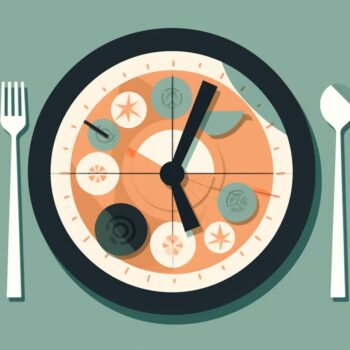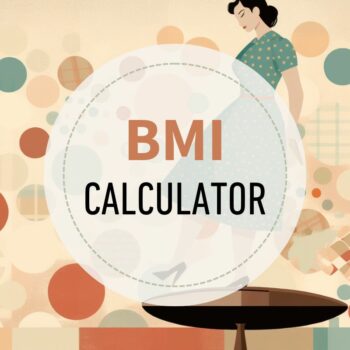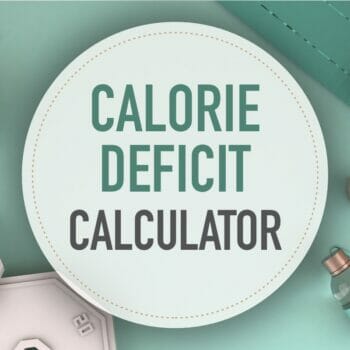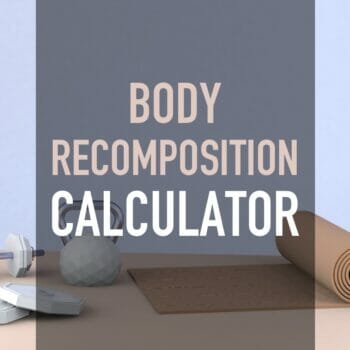TDEE Calculator
Use this TDEE calculator to quickly find your Total Daily Energy Expenditure (daily calorie needs).
Why is TDEE important?
Your TDEE (Total Daily Energy Expenditure) tells you exactly how much you must eat daily to maintain weight.
- Eat more than this, and you will gain weight.
- Eat less, and you will lose weight
This is called a calorie deficit – calculate it here.
Is TDEE and BMR the same?
No, they are not.
Every day your body burns a specific number of calories just by existing. This is known as your Basal Metabolic Rate or BMR.
BMR is based on weight, height, and age but does not include daily activity or exercise.
TDEE is effectively your BMR + extra exercise or activity.
TDEE and BMR are not the same, and as most people do more than lie in bed each day, TDEE is a more helpful tool.
Should I eat my TDEE to lose weight?
No. Your TDEE shows you your daily maintenance calories. If you eat your TDEE, you will stay the same weight.
How do you calculate TDEE for weight loss?
You lose weight by having a calorie deficit.
A calorie deficit means eating less than your body needs to maintain itself.
Ever had more bills than you had money? You had a financial deficit.
A calorie deficit is consuming less energy than you need to stay the same weight.
TDEE Weight Loss Example
Let’s say your BMR is 1,700 calories per day. With some physical activity, you end up with a TDEE of 2,300 calories.
To lose weight, you should consume around 1,840 calories per day.
How much should I subtract from TDEE?
After working with hundreds of successful clients, we’ve found a deficit of 20% from your TDEE is optimum.
You can also achieve a deficit by burning more calories through exercise.
Every effective diet, whether high fat, low fat, high carb, or low carb, uses a calorie deficit to achieve weight loss.
Why shouldn’t I subtract more calories?
Technically you could eat nothing all day and achieve weight loss through having a calorie deficit.
Many well-publicized crash diets put you into a severe caloric deficit. They result in short-term weight loss but will damage your metabolism.
Reducing your calories by more than 20% may lead to muscle loss. This is not desirable as muscle helps burn additional calories.
How long does it take to see results from a deficit?
There are 3,500 calories in a pound of fat, so with a 20% calorie deficit, most people will lose about a pound a week.
Your body can become conditioned to repeated exercise affecting your calorie intake and TDEE.
Not sure of the best path to achieving your health and fitness goals?
So switch things up from time to time! Change exercise routines, intensity, and duration.

How to get results with TDEE and a calorie deficit
Macro counting is a great way to hit your daily calorie target. You lose weight healthily and sustainably.
Counting macros (and flexible dieting) is non-restrictive. It means you still eat your favorite foods – provided they fit within your TDEE and macro goals.
You could eat unhealthy foods and still achieve weight loss. – as demonstrated by the 27-pound weight loss of Dr. Mark Haub.
However, loading your diet with fresh veggies, fruits, nuts, seeds, and lean meats is best. This way, you can feel awesome AND achieve weight loss.
TDEE FAQs
Does it matter what I eat if I count calories?
Yes and no.
You could eat nothing but snack cakes or pizza and still lose weight – if you maintain a calorie deficit.
However, for healthy body composition, a balanced diet is recommended.
Tracking macros will ensure you get enough of each macronutrient and meet micronutrient needs.
Does TDEE include exercise?
Yes, the TDEE is your total daily energy expenditure, so it must include all your movement in 24 hours.
Even non-exercisers are still doing activities around the house – eating, showering, running errands, etc.
Don’t confuse TDEE with Resting Energy Expenditure (REE) or Basal Metabolic Rate (BMR). These two represent energy expenditure if you lay in bed all day and did nothing.
How do I measure my TDEE and calorie intake?
Use the calculator above. It uses the most common variables.
If you want a genuinely accurate TDEE – talk to a coach.
Totaling your calories for the day is usually done with a macro tracking app.
How often should I recalculate my TDEE?
It would be best if you recalculated your TDEE as you lost weight. Do this every 6-8 weeks.
Does this have anything to do with BMI?
Body Mass Index or BMI is a measure of height and weight. It’s not the same thing as TDEE.
How do I use TDEE to gain muscle?
Once you’ve calculated your TDEE in the calculator above, add 10% to the calorie amount. The new calorie amount gives you a good starting point for weight gain.
If you still aren’t gaining, move this to a 20% surplus (use the macro calculator).
View article sourcesSources
- Rising, R., Harper, I. T., Fontvielle, A. M., Ferraro, R. T., Spraul, M., & Ravussin, E. (1994). Determinants of total daily energy expenditure: variability in physical activity. The American journal of clinical nutrition, 59(4), 800-804. study link
- Schulz, L. O., & Schoeller, D. A. (1994). A compilation of total daily energy expenditures and body weights in healthy adults. The American journal of clinical nutrition, 60(5), 676-681. study link
470 Comments


 Menopause Macro Calculator
Menopause Macro Calculator Intermittent Fasting Calculator
Intermittent Fasting Calculator BMI Calculator
BMI Calculator Calorie Deficit Calculator
Calorie Deficit Calculator Body Recomposition Calculator
Body Recomposition Calculator
I was overweight and tried so many things. Different things work for different people and I was lucky enough to find one that worked for me. I lost 20 pounds in one month without any exercise and it’s been a life changer. I’m a little embarrased to post my before and after photos here but if anyone actually cares to hear what I’ve been doing then I’d be happy to help in any way. Just shoot me an email at oceanflowers82@gmail.com and I’ll show you my before and after photos, and tell you about how things are going for me with the stuff I’ve tried. I wish someone would have helped me out when I was struggling to find a solution so if I can help you then it would make my day
I weigh 125 lbs and I would like to weigh 95 lbs, keep in mind that I’m a 5 foot teen. How many calories should I consume each day to reach my goal weight?
check out our calculator. https://healthyeater.com/flexible-dieting-calculator
Diets is not what you need to loose fat, weight training and good nutrition is what you need. If you want to get low body fat while keeping good strengh and muscle definition, stay low in weight and train for 1h to 1h30 a day 5 day a week and eat lot of protein and cut all the food with added sugar and with too much fat go natural.EAt less but more often also. every 2-3h will keep your internal body active and also burn extra calories.
I have a question. Can I, a slightly overweight individual, take in the same amount of calories I usually do and add exercise (burning additional calories) to lose weight? Or is having some sort of caloric deficit ABSOLUTELY CRUCIAL to weight loss?
Exercise can create a calorie deficit which is why it helps people lose weight, unless you are eating back more than you burn during exercise. You have to be in a calorie deficit to lose weight and this can be achieved with diet, with exercise or a combination there of.
I suggest that you check out our calculator here.
https://healthyeater.com/flexible-dieting-calculator
I think the one thing I’m not getting here is fat loss vs muscle loss. Weight is weight yes, and at the simplest level it’s all about calories in and calories out, but what if I want to weight 180lbs @ 8% body fat vs 180lbs @ 20% body fat. I think this is where I get confused. I don’t really care about the number in weigh but rather the body composition.
No one in their right mind would want muscle to disappear. However this is often what happens when people go on diets.
They are so keen to watch the scales go down that forget all about body composition. The goal is to gradually reduce calories, while still maintaining resistance training so that our body learns to use stored fat as a fuel source rather than breaking down muscle.
For some people this seems easier to do than others.
The idea if this article is that a gentle calorie deficit works far better than a drastically restricted diet.
I have also found that consuming more than the daily recommended amount of protein, along with strength training (and ideally the two on the same day) contributed to what I called my “toning up”. As a woman, I wasn’t looking to get really bulky, but consuming more of the protein that my body needed to rebuild my muscles and less of the fats and carbs that are less efficient (and thus not sought out by the body) to do that role, I was seeing more muscle definition in my arms and legs WHILE STILL LOSING WEIGHT! It felt like magic, but it’s really science! My BMI was decreasing AND my weight. While I was doing this, I strove for a macronutrient ratio of 40-45% carbs 30-35% protein and 28-30% fats. I’m not saying that’s right for everyone, but it is what worked for me.
I lost 13kgs once in less than three months because of following the calorie deficit method. Going to start doing this again. P.s: I would have married one of you guys cause you know so much about healthy weight loss it would beat downloading apps and hiring a trainer :p (p.s: Geeks are awesome too!)
hi, i liked ur search about the fat it was realy intresting but i love food i cant stop eating with a touch of masalas….i am 23 female weighting 70kgs i wana decrease my weight upto 25 kgs please help
My personal recommendation would be to apply the lessons from this article – Knowing how many calories are in your TDEE will be key to losing weight.
I’d also recommended to evaluate what you’re eating. Is it moving you towards good health or away from it?
Have a read of this to see what I mean:
https://healthyeater.com/eat-move-sleep
Hope that helps,
Dan
I lost my weight when I stopped counting calories. Low carb and leptin control was a right solution.
But weren’t you still mindful of how much food you were eating? Low carb diets are still designed to put the body in a calorie deficit and cause it to use stored fat for energy instead of sugars.
I don’t count calories, but I have a general sense of when I have eaten to much or too little.
Hi Daniel. Actually, among well designed studies, isocaloric research designs show that low carb tends to trump other macronutrient ratios, in terms of fat loss.
And its a good excuse to eat lots of meat.
Dunno if you guys have seen it? or not but theres a book over at
learningthesteel.com
That is interesting about diet, but mainly about discipline and the mental effects of all this too
Thanks for sharing, Connor! I’ve actually come across a few of those studies – They’re pretty intriguing and seem to be backed by a lot of research. My takeaway and personal experience is that calories in and out is a great place to start but being aware of your macro ratios is even better, both for health and physique.
From what I understand of the research, very few studies comparing low fat vs low carb actually match the calorie deficits. They eat more “ad libitum” which means until they were satisfied, not eating to a specific calorie deficit. This study,
Low-Fat Versus Low-Carbohydrate Weight Reduction Diets
Effects on Weight Loss, Insulin Resistance, and Cardiovascular Risk: A Randomized Control Trial
Una Bradley, Michelle Spence, […], and Steven J. Hunter
closely matched the calorie deficits to 500 calories. In this study, “All food was weighed and distributed, and intake was calculated to produce a 500 kcal/day energy deficit.” Food is not measured and weighed in ad libitum studies. Since the calorie deficits were matched in this study, the low fat and low carb groups had equal weight loss. As for meat eating, there are many cross sectional studies which show that Vegans are thinner than meat eaters. Vegetarians are thinner than meat eaters, but Vegans even thinner still. However, I lost most of my weight while I was still eating meat. I don’t eat it anymore. It may be that Vegans consume fewer calories than meat eaters.
Thanks for taking the time to share that study. Very interesting and good explanation of how some diet proponents can bend stats to support whichever eating plan they are promoting. In the end it really is about calories in a basic sense.
Since I’ve been doing vegetarian Monday through Friday, I find it hard to even get to my TDEE. I also weight train 3 days a week, plus surf, hike, bike every week. I don’t like protein supplements and try to eat carbs according to this pyramid attached. I’ve been doing good to not lose weight, but I’ve been struggling to gain.. Oh well, I should just be satisfied.
Anyway, my point is that big eaters can eat a lot of the right vegetables each day and still stay below their TDEE. This can help people feel satisfied without all the calories.
Are legumes included in this pyramid?
yeah, they are more of a protein/carb mix, but in my diet they would fall in the red zone since I need the protein. People who eat meat may want to move them to the orange zone as they are pretty carb dense.
This is exactly what I think. Research shows that when you match calorie deficits between let’s say low carb and low fat that there is identical weight loss. Also, if the calorie deficits are matched between exercisers and dieters, there is equal weight loss. You get a calorie deficit by increasing exercise expenditure by 500 calories above baseline, but not increasing intake above or below baseline. The dieters would decrease intake by 500 calories below baseline. A lot of people fail at this because they don’t figure out their TDEE. You can start with calculators and then very carefully measure food intake and having a consistent exercise program and then correlate with weight on the scale. Once you maintain your weight on the scale for perhaps a month at a certain activity level, then you can freeze your intake and exercise more to lose weight, or keep activity level the same and decrease your intake. I find that when I eat the number of calories that maintains my weight, I feel very satisfied. I still count calories, as well as exercise everyday, 3.5 years into maintenance.
Totally agree, Daniel. Calculators are just that: a starting point. It’s best to figure out the amount of calories YOU maintain weight at, and then work from there!
I didn’t use the TDEE calculator before I wrote my piece. I maintain my weight on about 3400 calories a day. At the highest activity level, the calculator says I can maintain it on 3025 calories. I do have a stand up job and I bicycle about 2-3 hours a everyday and go on brisk walks fairly often on top of that. I can fit that two hours in on work days by commuting by bike to work. That is far more time efficient that driving 30 minutes each way after work to go to a gym and then exercising that much and then still have the car commute time to work. You could substract about 30 minutes from the time loss because driving to and from work takes about 30 minutes in all. Work is about 5 miles from where I live.
Sounds like you’re really active! Keep it up
2-3 hours a day cycling is a massive amount of calorie burned (https://www.freedieting.com/tools/calories_burned.htm) — and most TDEE calculators would probably not factor in such a significant amount of exercise.
Admittedly managing energy intake is the baseline. But things are always more complex, especially when hormones like leptin come into play.
So, two people could calculate their TDEE, and eat according to this, but in one, more of the energy could be freed up from fat stores (leading to more fat loss). This may well be governed by hormonal responses.
So complex.
This is awesome and I want to thank you for posting this. When I was heavy, I was eating close to 4000 calories a day but my TDEE was closer to about 2800, so to lose I just ate about 2300 a day for a while. I didn’t eat something crazy like 1200 a day because when you do that, you actually don’t lose as much because that’s when you get in the magic “starvation” zone. I weigh around 104 lbs now and I’ve never eaten fewer than 1600-1700 calories a day in my life. I would starve to death on the 1200 calorie a day diets that are out there.
Glad to hear, Spectra! Unfortunately it’s all too common for people (especially women) to fall for the trap of extremely low cal eating. You have a very inspiring story. How much weight have you lost?
I personally lost 90 lbs and have kept the weight off for 12 years. The trick was definitely to not try to make too drastic of a diet change right away because you will not be able to stick with that and your body will start to rebel.
Amazing! Did you follow in particular strategy to accomplish that?
thanks for sharing. It is really helpful to hear of your journey and how you accomplished it.